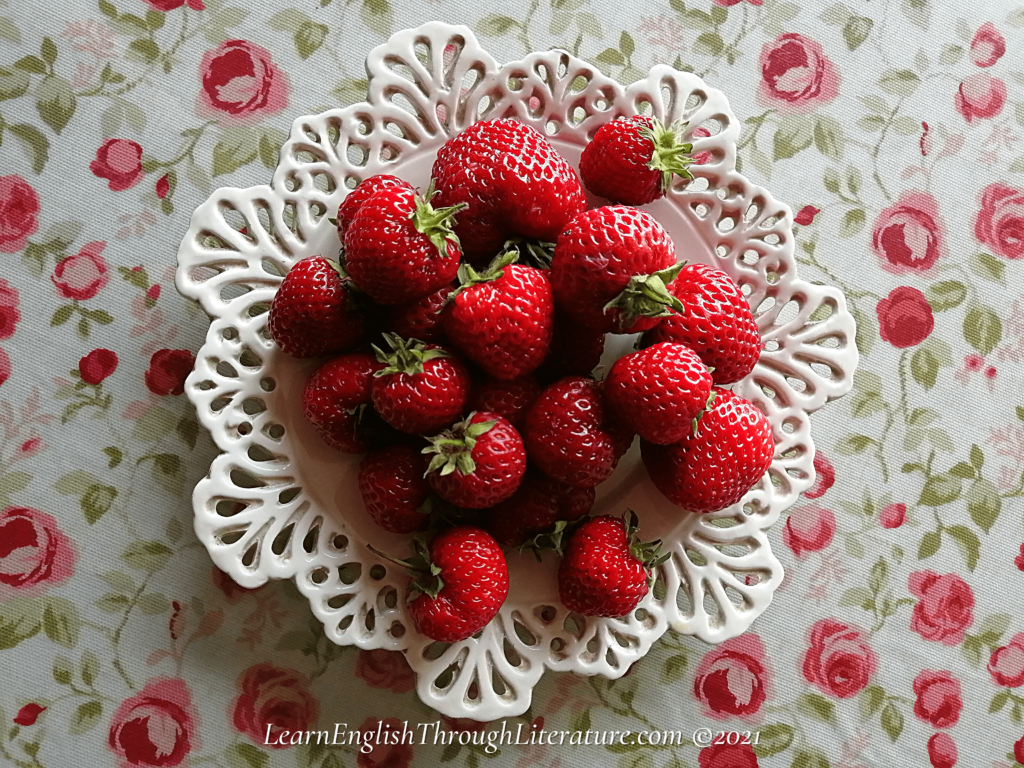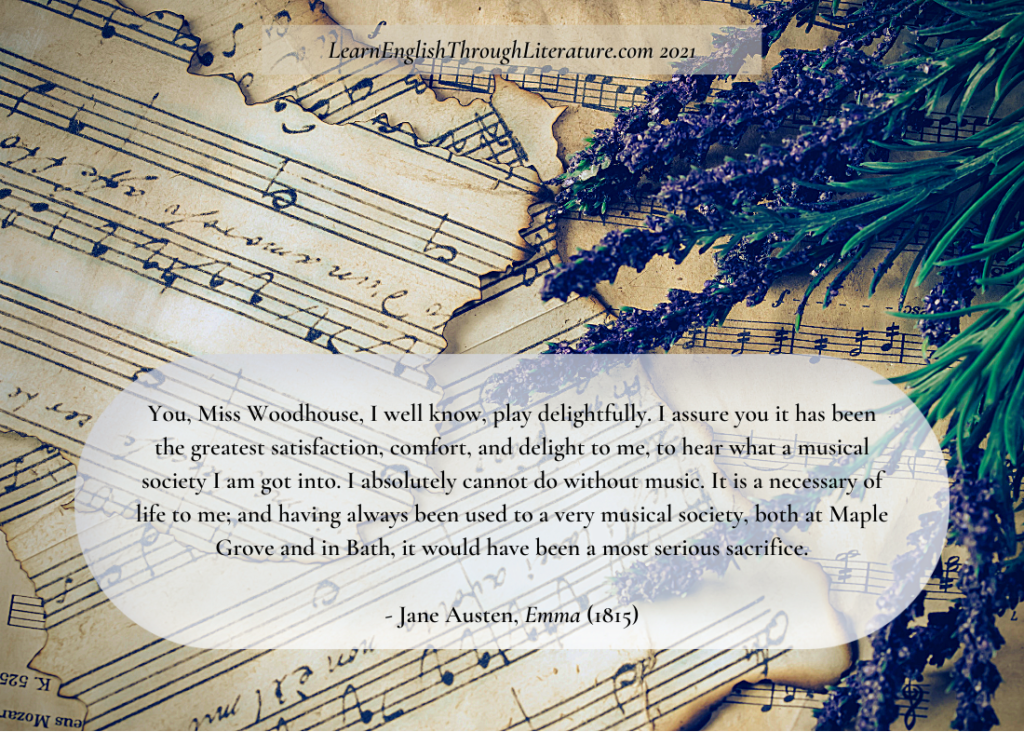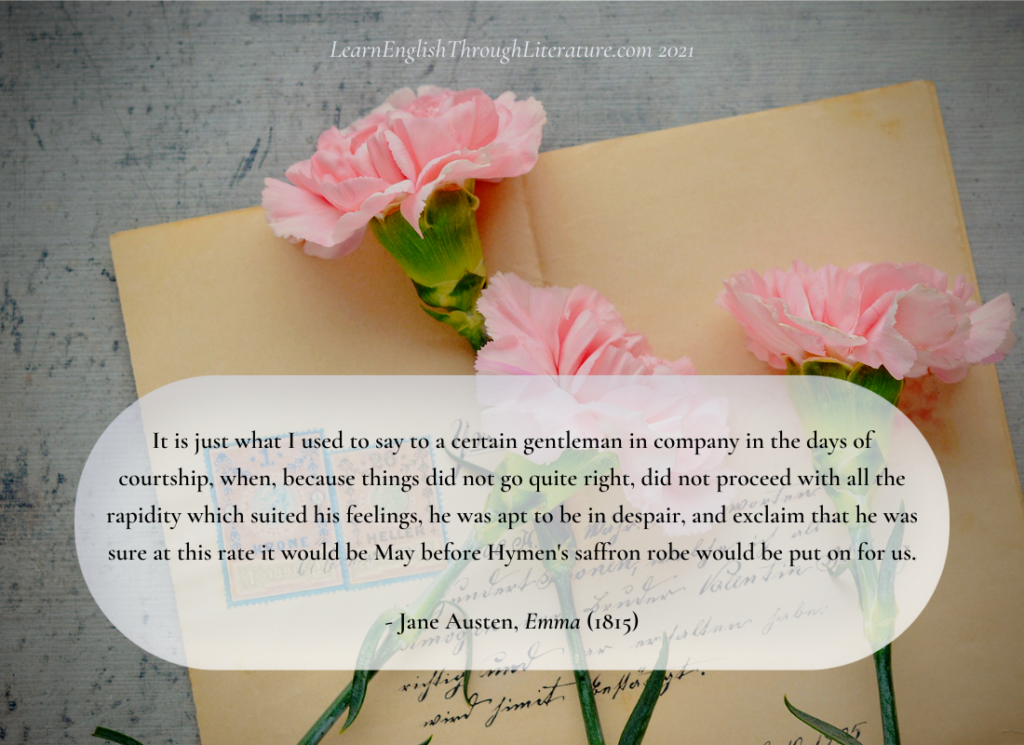Lesson #243: Observations on How Austen Reported Speech (Free Indirect Speech in ‘Emma’)
📗 “You had better explore to Donwell,” replied Mr. Knightley. “That may be done without horses. Come, and eat my strawberries. They are ripening fast … ” [Mrs Elton replied]: “It is to be a morning scheme, you know, Knightley; quite a simple thing. I shall wear a large bonnet, and bring one of my […]
Lesson #243: Observations on How Austen Reported Speech (Free Indirect Speech in ‘Emma’) Read More »



